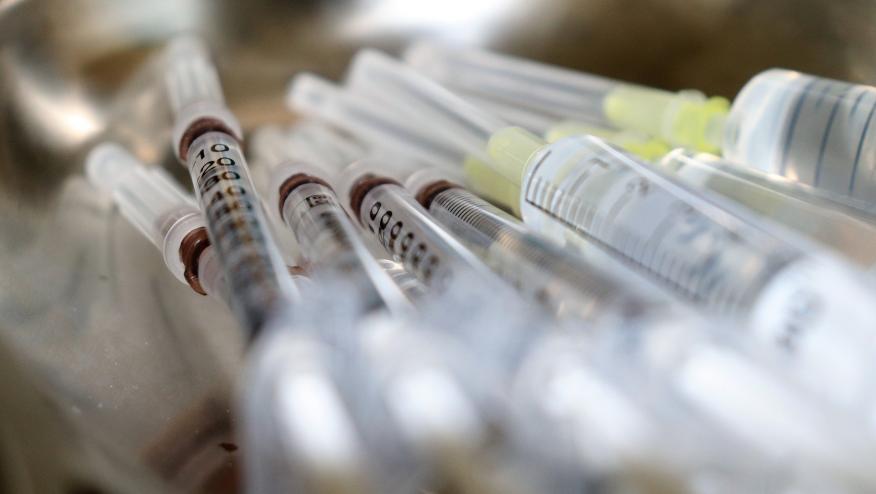How Should Patients With Autoimmune Diseases Approach COVID Vaccination? Save

Healthcare is a personal and individualized relationship between a provider and patient. Each patient is treated according to their particular symptoms and personal health characteristics. For this reason, the wide variability in patient responses to the same medical treatments must be acknowledged and accounted for in making public health decisions. Yet, there has been a lack of specific government guidance to help those with autoimmune diseases navigate COVID-19 vaccination.
Many of us either have an autoimmune disease or know someone living with one, such as multiple sclerosis (MS), rheumatoid arthritis, lupus, Crohn's disease, psoriasis, or others. While the pandemic is difficult for all of us, these patients have faced higher rates of severe COVID-19 and death.
The incomplete messaging on vaccination for this population is only making things more challenging. Patients with autoimmune diseases who are taking drugs that may suppress their immune response have been told the vaccines may not fully benefit them, if at all. In August, the CDC stated: "giving [immunocompromised patients] an additional shot is almost not considered a booster" because "it's considered part of what their original regimen should have been." Following this, the CDC issued a blanket recommendation that all patients on active treatment with "drugs that may suppress [their] immune response" receive an additional dose of a COVID-19 mRNA vaccine. More recently, FDA amended the emergency use authorizations (EUA) for the Pfizer-BioNTech and Moderna vaccines to allow for use of a booster dose by people at high risk of severe COVID-19, and for all Johnson & Johnson recipients. CDC clarified who is considered high-risk by endorsing boosters for adults with underlying medical conditions, which includes people in an "immunocompromised state." Taken together, current guidance appears to cumulatively recommend autoimmune patients taking drugs that may suppress their immune system secure both an additional dose and a booster, but in fact the CDC and FDA have still not weighed in on this specific scenario.
It's true that some patients with autoimmune disease on therapies that affect their immune system experience a reduction in immune response, thereby impairing their ability to achieve the full benefits of COVID-19 vaccines. However, emerging evidence suggests this diminished immune response may not be the rule; some of these patients may achieve similar vaccination benefits from a standard COVID-19 vaccine regimen as the general population. Reconciling this distinction could have major implications in health policy and the ability to determine not merely the percentage of those vaccinated, but more importantly, a better understanding of overall public immunity to COVID-19 after vaccination.
Take MS for example. A new peer reviewed study published in the Journal of Neuroimmunology examines the immune response to mRNA vaccines for COVID-19 in patients with MS who simultaneously are being treated with immunomodulating therapies. The study determined that certain medications for MS did not blunt the vaccine response in these patients, finding overall that "[v]accination and [these therapies] can be timed to maintain disease control and also allow effective vaccination against SARS-CoV-2." Public health officials should be disseminating this information to the MS community to potentially increase understanding of their protection from COVID-19 and enable more informed healthcare decisions.
This study provides important information for patients suffering from MS; it indicates these patients might not have to compromise between treating their disease and eliciting a standard immune response to the COVID-19 vaccine. But the study also raises the bigger public health question of vaccine effectiveness in the autoimmune disease space. Public health leaders should focus on researching how different therapies for the whole spectrum of autoimmune diseases affect COVID-19 vaccine response. While it is encouraging that NIH is investigating the antibody response from an additional dose in autoimmune disease patients who had a suboptimal response to an initial COVID-19 vaccine regimen, it is just as important to research which autoimmune therapies do allow for a vaccine response similar to that of the general population.
The CDC encourages patients taking drugs that may suppress their immune response -- such as many patients with an autoimmune disease -- to act like they are unvaccinated regardless of their vaccination status. They are advised to wear a mask, maintain social distance, and avoid crowds and poorly ventilated indoor spaces. When public health officials again relax recommended precautionary measures for the general population, a more nuanced understanding of which patients in the immunocompromised community should continue to follow restrictive measures is vital. Without such information, members of this heterogenous population may be unnecessarily curtailing activities of daily living.
COVID-19 is not going away any time soon. Public health officials must focus more on the unique needs of patients with autoimmune disease or they will miss achieving long-term public health and vaccination goals. The administration, FDA, and CDC must provide tailored guidance on which autoimmune disease therapies do and do not have an impact on vaccine effectiveness. This information will empower physicians to treat these patients with more precise approaches and public health officials to make evidence-based health policy. Most importantly, it can give patients with autoimmune disease a chance to reclaim their lives.
- Author Kirk Taylor, MD, serves as senior vice president of North America Medical Affairs for EMD Serono, the biopharmaceutical business of Merck KGaA, Darmstadt, Germany.










If you are a health practitioner, you may Login/Register to comment.
Due to the nature of these comment forums, only health practitioners are allowed to comment at this time.